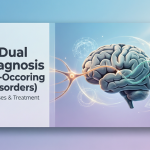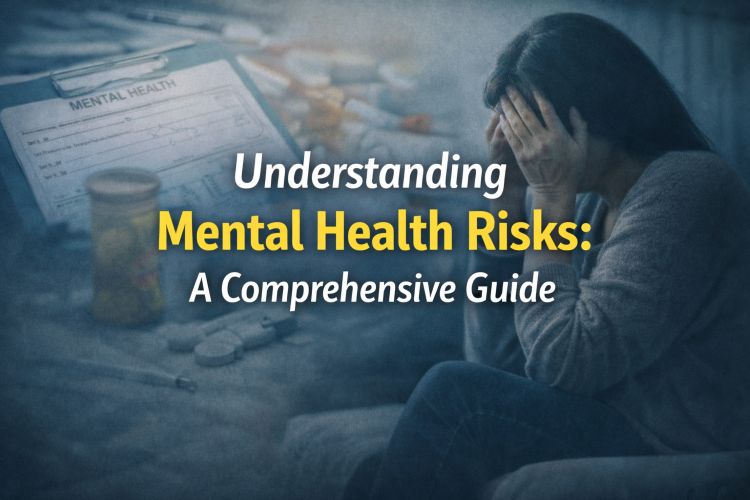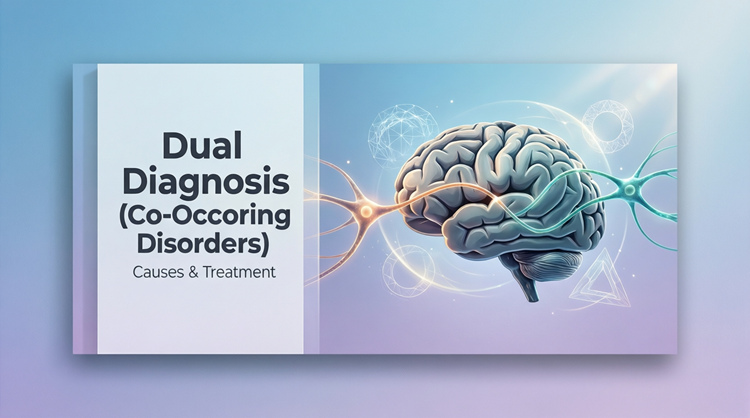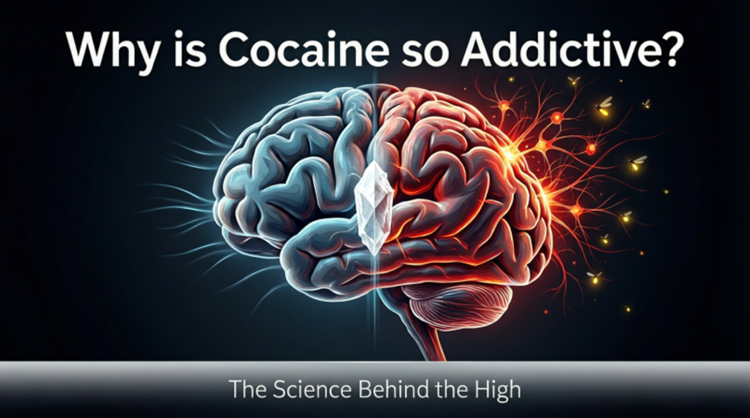In today’s fast-paced world, maintaining good mental health is more important than ever. With the constant barrage of stressors from work, relationships, and daily life, it’s crucial to prioritize self-care and well-being.
What is Mental Health?
Mental health is defined as an individual’s emotional, psychological, and social well-being. It has an impact on how people think, feel, and behave, impacting how they handle stress, interact with others, and make decisions. Mental health is necessary at all stages of life, from infancy and adolescence to maturity.
Good mental health is defined by a sense of well-being, self-acceptance, resilience, and the ability to deal with life’s difficulties. Mental health issues, on the other hand, can severely affect a person’s thinking, emotions, behavior, and daily functioning, causing anguish and trouble functioning in everyday life. Prioritizing mental health and seeking treatment when required is critical for overall well-being.
Mental health is as important as physical health. Like our bodies, our minds can sometimes develop problems that can affect our daily lives. There are many signs of mental health concerns, and it’s important to be aware of them so you can get help when you need it.

Here are some common symptoms of mental health problems:
Signs of Mental Health
Emotional changes: feeling anxious, worried, sad, depressed, or guilty. Emotional outbursts or irritability are also common symptoms.
Changes in behavior: Withdrawal from social activities, neglect of personal hygiene, or changes in sleeping or eating habits can all be symptoms of a mental health problem.
Difficulty thinking: Problems concentrating, remembering things, or making decisions may be related to mental health.
Physical symptoms: There may be a connection between mental and physical health. Unexplained aches and pains, or digestive problems can sometimes be related to mental health problems.
Suicidal Thoughts: If you or someone you know is having suicidal thoughts, please seek help immediately. Crisis hotlines are available and you can also connect with a mental health professional.
It’s important to remember that everyone experiences these things from time to time. If symptoms are persistent and interfere with your daily life, it is important to contact a mental health professional.
Powerful Ways to Improve Mental Health
In this guide, we explore 5 powerful ways to improve mental health, reduce stress, and build resilience. Discover how to connect with loved ones, embrace nature, and prioritize healthy habits for a happier, healthier you.
1. Practice Mindfulness and Meditation:
In our busy lives, it’s easy to get caught up in regrets about the past or fears about the future. However, learning to be present at the moment through mindfulness and meditation can have a huge positive impact on your mental health. Taking a few minutes each day to sit quietly, focus on your breathing, and let go of racing thoughts can help you reduce stress and feel calm. Mindfulness promotes acceptance and non-judgment of one’s thoughts and feelings, which can help reduce symptoms of anxiety and sadness.
Incorporating mindfulness into your daily routine doesn’t have to be complicated. You can start by setting aside a few minutes each morning to practice deep breathing exercises or guided meditation. Additionally, integrating mindfulness into everyday activities like eating or walking can help you stay grounded and connected to the present in the moment. By making mindfulness a habit, you will develop greater self-awareness and resilience in the face of life’s challenges.
2. Be active and exercise regularly:
Physical activity is not only good for your body, It is also important for your mental health. Regular exercise produces chemicals called endorphins which act as natural mood boosters and stress relievers. Whether it’s taking a brisk walk, taking a yoga class, or going to the gym, finding activities you love can have a significant impact on your general health.
Exercise not only improves your mood but also boosts your self-esteem and confidence. Setting realistic fitness goals and celebrating your accomplishments can help you feel more accomplished and motivated. Participating in group fitness classes or outdoor activities can also provide social support and build relationships with others, which are essential for healthy mental health maintenance.
3. Prioritize sleep and rest:
In today’s world, sleep is often sacrificed for work or entertainment. However, getting enough quality sleep is important for your physical and mental health. Lack of sleep can affect cognitive performance, emotional management, and immunological function, increasing your susceptibility to stress and mental health illnesses.
Creating a consistent sleep pattern and a soothing nighttime ritual will help you sleep better and longer. Avoiding coffee and electronic gadgets before bed, creating a pleasant sleep environment, and practicing relaxation methods can help signal your body that it is time to rest. Prioritizing relaxation helps your mind and body to rejuvenate, increasing your ability to deal with daily pressures and difficulties.
4. Nurture Meaningful Relationships:
Human connection is an essential component of psychological well-being. Developing and maintaining meaningful relationships with friends, family, and community members promotes a sense of belonging, support, and satisfaction. Developing strong social connections can help reduce feelings of loneliness, sadness, and anxiety, improving your overall quality of life.
Make an effort to spend time with loved ones and participate in activities that promote connection and harmony. Fostering relationships, whether through sharing meals, going on hikes, or simply through genuine conversation, can enhance your support network and increase your resilience in the face of difficulty. Remember that when it comes to relationships, quality outweighs quantity, so prioritize building deep, meaningful relationships with people who uplift and inspire you.
5. Practice self-compassion and acceptance:
Ultimately, being good to yourself and learning to accept imperfections is important for mental health. Many of us are our own worst critics, holding ourselves to unreasonable expectations and berating ourselves for perceived failures or weaknesses. However, practicing self-compassion involves treating yourself with the same love, understanding, and forgiveness that you would show a friend.
Good mental health has wide-ranging benefits that impact all aspects of our lives. Here are some of the key benefits:
Improves emotional well-being: You’ll feel happier, more confident, and more hopeful. You are normally content with life.
Stronger relationships: Good mental health enables you to be more present and supportive of your friends, family, and love partners.
Enhanced Resilience: You are more prepared to encounter and overcome adversity.
Increased Productivity: Mental health issues can drastically reduce productivity. Feeling happy psychologically enables you to concentrate, perform more efficiently, and deliver higher-quality results.
Better physical health: According to research, maintaining strong mental health can help minimize the risk of physical ailments such as heart disease, diabetes, and stroke.
Positive outlook: You become more positive about the possibilities of life and progress, both in yourself and in the world around you.
A strong sense of purpose: You have a sense of significance and worth in your life.
Seek Professional Help When Needed: Don’t Hesitate to Reach Out to DeLand Treatment Solutions
Just like physical health, mental health challenges are sometimes inevitable. If you’re struggling with persistent feelings of anxiety and hopelessness, remember, that seeking professional help is a sign of strength, not weakness.

At DeLand Treatment Solutions, we provide personalized guidance, support, and effective coping mechanisms to help you navigate mental health challenges and improve your overall well-being. Feel free to call us at (386) 866-8689 today.





















